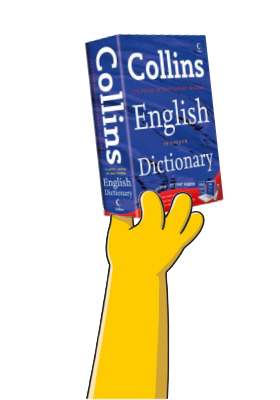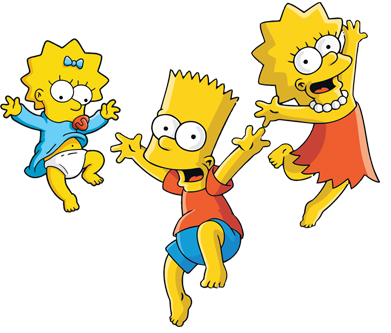 If you’re a teenager of the naughties, a phrase like “meh” might seem like second nature to you. But the popular expression of indifference or boredom has earned a place in the 30th edition of the Collins English Dictionary, according to media reports.
If you’re a teenager of the naughties, a phrase like “meh” might seem like second nature to you. But the popular expression of indifference or boredom has earned a place in the 30th edition of the Collins English Dictionary, according to media reports.
The term is actually believed to be derived from an episode of The Simpsons, in which Homer suggests taking the family on a fieldtrip, to which Bart and Lisa both respond “meh”, instead continuing to watch television.
It has since spread through the internet and has worked its way into common usage.
The dictionary’s publisher HarperCollins called for the public to submit words that were in common conversational usage but not in the English dictionary, to which the word “meh” was received as the biggest response.
“Meh” beat words such as “frenemy”, an enemy who pretends to be a friend, “huggles”, a combination of a hug and a snuggle and “jargonaut”, meaning someone who excessively creates new words, to be included.


Didn’t a certain Simpsonise post that yesterday, Brian.
yays!
Oh my god and the Associated Press posted it before you. SCANDAL.
So what if you did? We’re allowed to post the same news.
Yea but a little credit for all the sources that beat you two too it would be nice.
Simpsonise, Spingfield Springfield and Yahoo have all beeen plaged (is that the right word) by SC. Be ashamed.
I dont use any of those sources. I also didn’t see you thank any source when you posted it.
I thought you would make that point. Thanks for the up in my stats.
no problem.
New rule, we must visit every site to make sure they have the news up before us, then CREDIT them for being home to post about it when we werent.
You’re borderline being banned again. Stop being such a moron.
Meh, this argument is pointless. I’ve been on here a long time now, approaching 2 years, but really, who cares where the news comes from?
On topic none the less, which episode was the phrase from. I can’t remember.
apparently it’s from a 2001 episode…not sure which though.
Adam: You crack me up.
Everyone: I don’t care where you steal news from, but if you steel it from me give me some credit.
Brian: I was going to say that but forgot 😐 Meh
We don’t need to steal news from your website. And if that’s the case, you should be giving SC credit for everything you’ve stolen from here.
I post the ratings here every week – exclusively, 5 minutes within which they become known to me. And they always end up on your site without credit.
And I have never taken anything from your site. Get off your high horse.
Got it. Twas actually from the 1992 episode ‘Homer’s Triple Bypass’
-Meh.
What I’m interested in, is where did the writer(s) get it? Did they already use “meh” in their conversation, and if so, where did they hear it from? Or did they make it up just for the episode?
The term “Meh” has been around for years even decades, and long before Bart and Lisa’s retort. It has had variances in it’s spelling and implementation other than just being spelled, Meh. Meh is short for the original phrase and meaning “yeah whatever”, which by the mid 1970’s was already popularized in television and movies. Given examples are Mel Brooks films, F Troop, Gilligans Island and many others. Another variable is “mnyeah” immortalized by the famous Edward G. Robinson during the 1930’s and 40’s, but had a different meaning and use and it was a sloppily pronounced “yeah”. It was the Simpsons that reintroduced it’s popularity with the help of lazy bloggers with bad spelling comprehension. These days the youth are so self absorbed and apathetic they don’t even know how to properly mispell actual words with it’s proper slang derivetive.
MEH